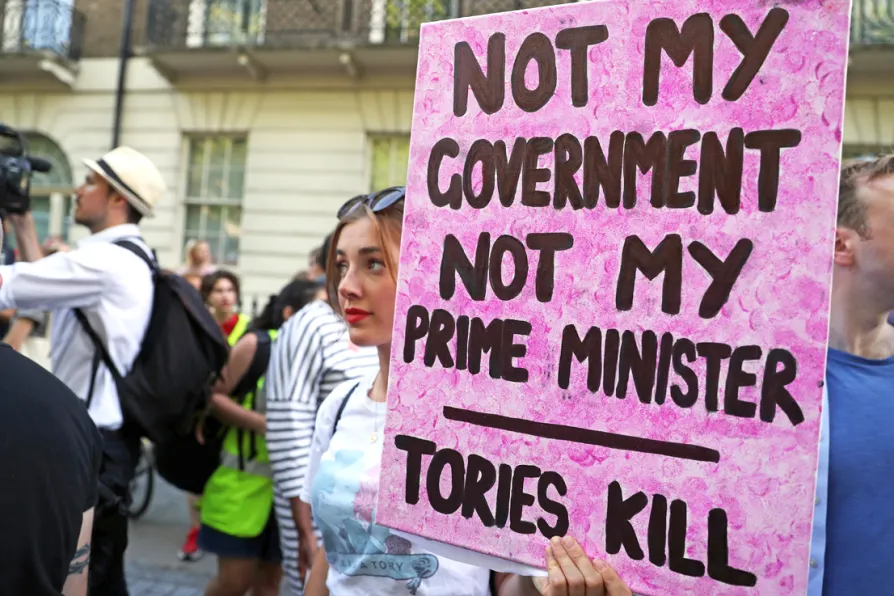DIANE ABBOTT explodes the anti-migrant myths perpetrated by cynical politicians and an irresponsible mass media
Boris Johnson is for the few – Labour is for the many
The new PM’s government has already shown it’s only governing in the interest of the 1 per cent, writes DIANE ABBOTT MP

 ONE OF THE MANY: Getting the message across – loud and clear
ONE OF THE MANY: Getting the message across – loud and clear
IT WAS recently revealed that 14.3 million people are in poverty in the UK, with seven million people in persistent poverty — meaning that they have been in poverty for two of the previous three years.
More than four million people are trapped in deep poverty, meaning their income is at least 50 per cent below the official breadline (currently around £195 a week for a lone parent with two children).
Going into more depth, the report from the Social Metrics Commission, chaired by Conservative peer Philippa Stroud, tracks evidence showing poverty is markedly worse now than five years ago.
Similar stories

Meanwhile, the Prime Minister walks in the direction of the biggest bosses

For its own good the Labour government should take a radical, progressive approach to investing in public services instead of tinkering around the edges, argues DIANE ABBOTT

Comparing Budget measures to fictional Tory plans rather than actual spending levels conceals continued austerity, argues DIANE ABBOTT MP, as workers face stealth tax increases to bear the cost of economic stagnation











